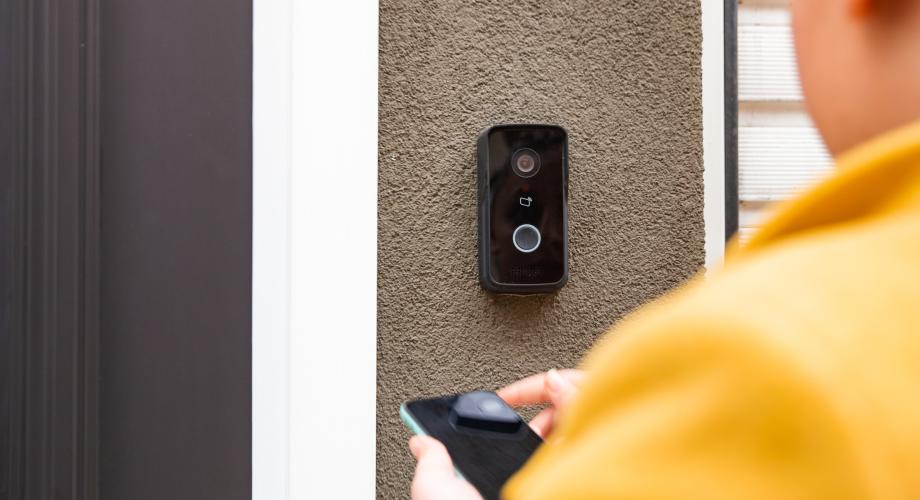Smart doorbells are becoming ubiquitous throughout society, including in multifamily housing communities. Residents and property owners alike are now using smart and internet-connected doorbells to enhance security, increase visibility and add a layer of technology and flexibility to the living experience. But are these technologies worth the risk?
Smart and internet-connected devices often collect more information than users understand. These devices can also pick up activity from passersby and neighbors, and device companies often share information with law enforcement without prior notice. From claims of invasion of privacy to lax security controls to cooperation with law enforcement, smart doorbells can therefore sometimes usher in controversy and potential legal risk.
The following are risks and actions associated with smart doorbells for owner-operators to consider when determining whether to allow these devices at an apartment community.
The Minefield of Smart Doorbells
Smart doorbells can present a number of thorny legal issues to consider when thinking through whether to allow their use at an apartment community.
Privacy
Although there are no U.S. laws prohibiting the installation of smart doorbells in public places, there are existing laws throughout the country that generally prohibit recording activity (both visual and audio) in a space where there is a reasonable expectation of privacy. In the context of smart doorbells, this may become an acute issue as it relates to neighbors and the behavior of those outside of the direct view of the camera. Although a smart doorbell may be recording video of persons who arrive on a doorstep, they could also inadvertently record activity happening in the apartment across the hallway or record the movements of individuals in the hallway. This type of recording becomes a particular issue if they are used in a state that requires consent before the recording of an area where there is a reasonable expectation of privacy.
Security
Researchers for years have warned against the security risks associated with internet-connected devices, such as smart doorbells. In short, if the device is connected to the internet, it can be compromised. The Federal Trade Commission, for example, recently announced a penalty against a well-known smart camera company for violations of privacy and security as it relates to their smart cameras. How much is being stored by the company? What are they doing with the data? Is there a risk of security? These are all questions property owners—and residents—should be asking before using a smart doorbell.
Law Enforcement
Smart doorbell companies may, from time to time, provide data to law enforcement and sometimes without consumer notice. The smart doorbell providers may, for example, give recorded video to law enforcement through court-issued warrants or subpoenas without notice being provided to the owner of the camera or those who are present on the video feeds. Neighbors and law enforcement are also exchanging video feeds through social media platforms, further complicating this issue.
Property Damage
Smart doorbells can introduce property damage. By allowing residents to use smart doorbells, they often must attach the devices to the door or wall adjacent to the door. This may require screwing into walls, which can create damage to plaster or stucco.
Next Steps
Allowing residents to install smart doorbells or security systems on the exterior of their apartments is a case-by-case consideration. But there are steps that can immediately be taken:
Review and update lease agreements.
There are legal risks associated with such permitted behavior, and it may therefore be advisable to ban the use of smart doorbells altogether in lease agreements. If a ban is not feasible, it may be appropriate to limit the types of brands that may be used to those that don’t necessarily record the behavior of other residents.
Develop a list of preferred providers and control the installation.
Curating a list of preferred providers may require vetting appropriate brands from a privacy and security perspective and placing limitations on whether such recordings can be stored for a period of time. It may also be advisable for the property management company to control the installation or removal of these devices to mitigate the property damage risk outlined above. Further, if the apartment community permits smart doorbells, it’s important to control the installation. Consider whether to impose a policy that only those smart doorbells that are installed by property maintenance are permitted.
Assess notices at the property and online.
If the property is using smart doorbells as a policy, there may need to be additional privacy disclosures, both in-person at the property and/or online via an online privacy policy.
Peter Stockburger is the Managing Partner of the San Diego office of Dentons. Dentons is the world’s largest law firm. Peter can be reached at 619-595-8018 or [email protected].
